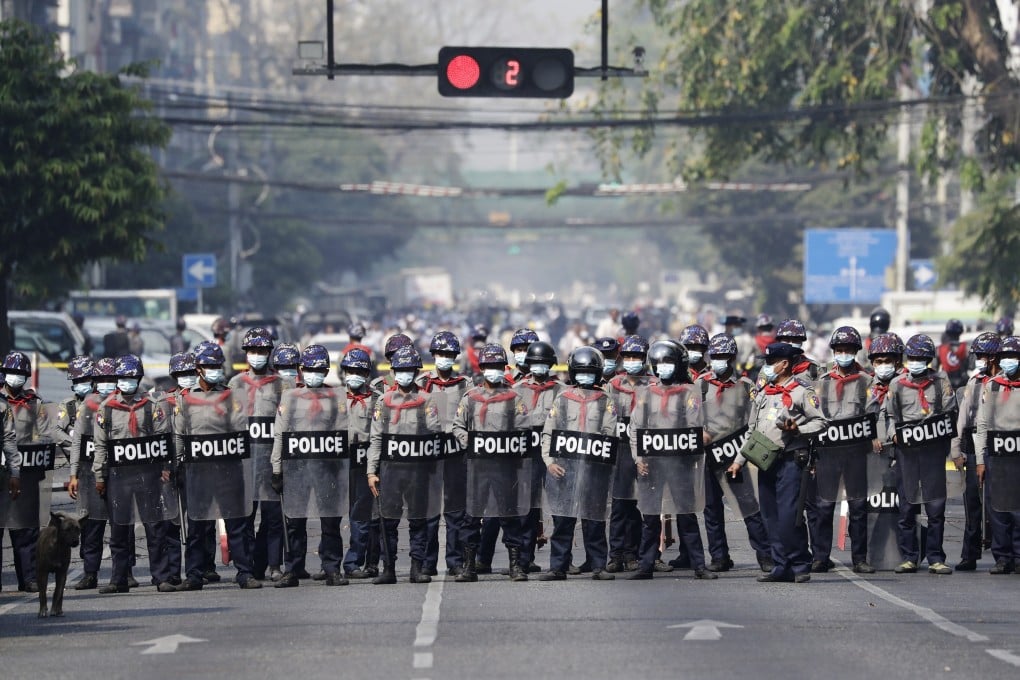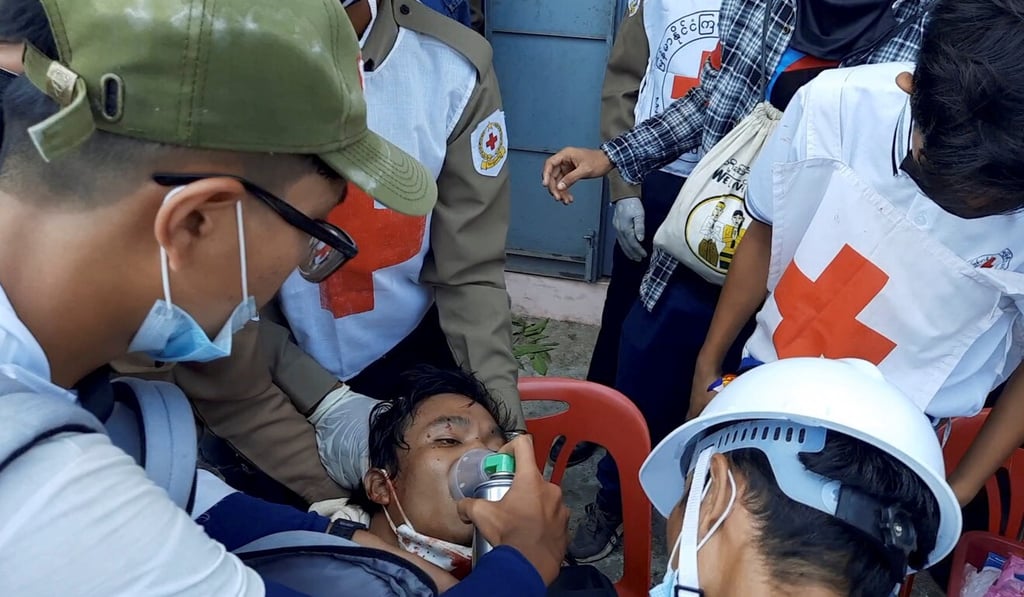Myanmar police kill at least 18 in bloodiest day of anti-coup protests
- Several people were also wounded in the main city of Yangon, with local media reporting police use of live fire, stun grenades and tear gas
- The crackdown appears to indicate a determination by the military to impose its authority in the face of widespread defiance

Crowds of demonstrators came under fire in various parts of the biggest city of Yangon after stun grenades, tear gas and shots in the air failed to break up their protests.
Across the country, protesters wearing plastic work helmets and with makeshift shields faced off against police and soldiers in battle gear, including some from units notorious for tough crackdowns on ethnic rebel groups in Myanmar’s border regions.

03:56
Myanmar police kill at least 18 in deadliest anti-coup protests yet, UN Human Rights Office says
“Severe action will be inevitably taken” against “riotous protesters”, the state-run Global New Light Of Myanmar said. The army had previously shown restraint, but could not ignore “anarchic mobs”.
Several wounded people were hauled away in Yangon by fellow protesters, leaving bloody smears on pavements, media images showed. One man died after arriving at a hospital with a bullet in his chest, said a doctor who asked not to be identified.
“Police and military forces have confronted peaceful demonstrations, using lethal force and less-than-lethal force that – according to credible information received by the UN Human Rights Office – has left at least 18 people dead and over 30 wounded,” the UN human rights office said.
